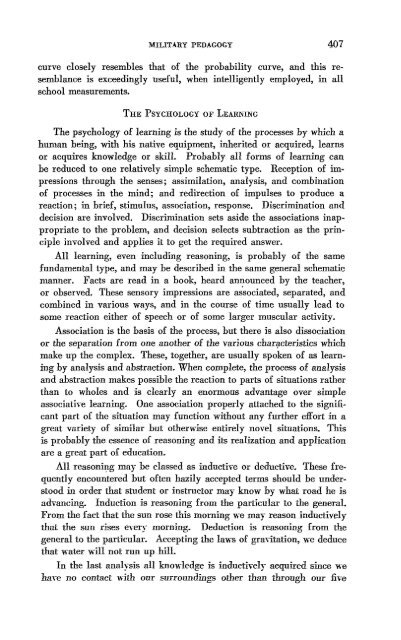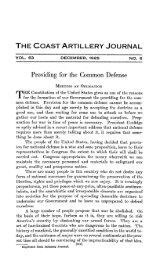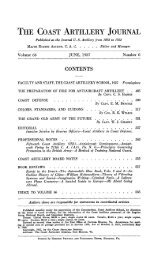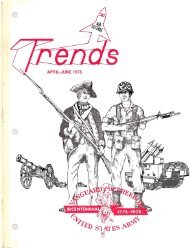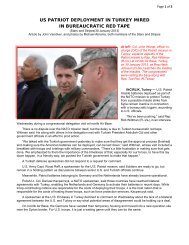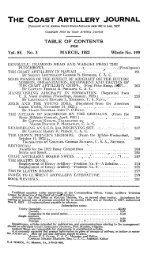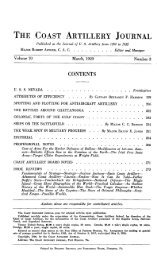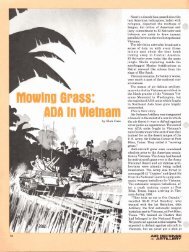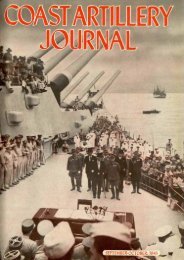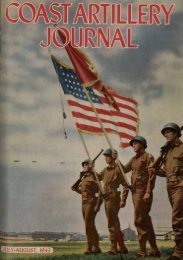COAST. I ARTILLERY JOURNAL, - Air Defense Artillery
COAST. I ARTILLERY JOURNAL, - Air Defense Artillery
COAST. I ARTILLERY JOURNAL, - Air Defense Artillery
You also want an ePaper? Increase the reach of your titles
YUMPU automatically turns print PDFs into web optimized ePapers that Google loves.
MILITARY PEDAGOGY 407<br />
curve closely resembles that of the probability curve, and this resemblance<br />
is exceedingly useful, when intelligently employed, in aU<br />
school measurements.<br />
THE PSYCHOLOGY OF LEARNING<br />
The psychology of learning is the study of the processes by which a<br />
human being, with his native equipment, inherited or acquired, learns<br />
or acquires knowledge or skill. Probably aU forms of learning can<br />
be reduced to one relatively simple schematic type. Reception of impressions<br />
through the senses; assimilation, analysis, and combination<br />
of processes in the mind; and redirection of impulses to produce a<br />
reaction; in brief, stimulus, association, response. Discrimination and<br />
decision are involved. Discrimination sets aside the associations inappropriate<br />
to the problem, and decision selects subtraction as the principle<br />
involved and applies it to get the required answer.<br />
All learning, even including reasoning, is probably of the same<br />
fundamental type, and may be described in the same general schematic<br />
manner. Facts are read in a book, heard announced by the teacher,<br />
or observed. These sensory impressions are a;sociated, separated, and<br />
combined in various ways, and in the course of time usually lead to<br />
some reaction either of speech or of some larger muscular activity.<br />
Association is the basis of the process, but there is also dissociation<br />
or the separation from one another of the various char1;1Cteristicswhich<br />
make up the complex. These, together, are usually spoken of as learning<br />
by analysis and abstraction. When complete, the process of analysis<br />
and abstraction makes possible the reaction to parts of situations rather<br />
than to wholes and is clearly an enormous advantage over simple<br />
associative learning. One association properly attached to the significant<br />
part of the situation may function without any further effort in a<br />
great variety of similar but otherwise entirely novel situations. This<br />
is probably the essence of reasoning and its realization and application<br />
are a great part of education.<br />
All reasoni~g may be classed as inductive or deductive. These frequently<br />
encountered but often hazily accepted terms should be understood<br />
in order that student or instructor may know by what road he is<br />
advancing. Induction is reasoning from the particular to the general.<br />
From the fact that the sun rose this morning we may reason inductively<br />
that the sun rises every morning. Deduction is reasoning from the<br />
general to the particular. Accepting the laws of grm,-itation,we deduce<br />
that water will not run up hill.<br />
In the last analysis all knowledge is inductively acquired since we<br />
have no contact with our surroundings other than through our five


